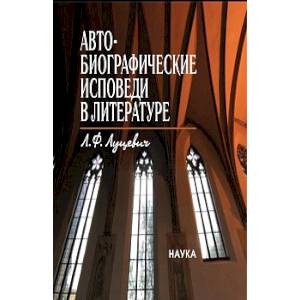Autobiographical confessions in literature: Pretexts. Texts. Contexts.
Please sign in so that we can notify you about a reply
The autobiographical confessional word to a certain extent conditioned the formation and long process of development of a new literary culture throughout the European space, starting from late Antiquity through the Middle Ages and the Renaissance to Modern times. The monograph includes a historical-theoretical description of confession as a key word of culture, essays dedicated to confessions of European authors (such as Augustine, Peter Abelard, Jean-Jacques Rousseau), and their reception by representatives of the Russian Silver Age: D. Merezhkovsky, D. Filosofov, V. Rozanov, G. Fedotov. The prehistory of Russian autobiographical confessions in the Middle Ages is outlined, and their history is more detailed: from the emergence of "heartfelt confessions" in the second half of the 18th century to their wide dissemination in the 19th century. The creators of autobiographical confessions - writers, poets, publicists, reigning figures (Catherine II and D. Fonvizin, P. Vyazemsky and Nicholas I, N. Gogol and M. Bakunin, N. Ogarev and V. Kelsiev, A. Tolstoy and K. Leontiev, L. Tolstoy and L. Tikhomirov, etc.), seeking to understand themselves, to realize the processes of their own and universal human development, explore their spiritual experience, try to unravel the "hidden springs" of events, reveal the depths of the psyche, find adequate ways, methods, means for self-expression.
Author:
Author:Lutsevich L. F.
Cover:
Cover:hardcover
Category:
- Category:Biographies & Memoirs
- Category:History & Geography
Publication language:
Publication Language:Russian
Paper:
Paper:white
Dimensions:
Dimensions:22.5x15x2.5 cm
ISBN:
ISBN:978-5-02-040788-6
No reviews found
